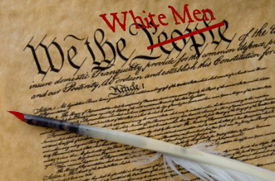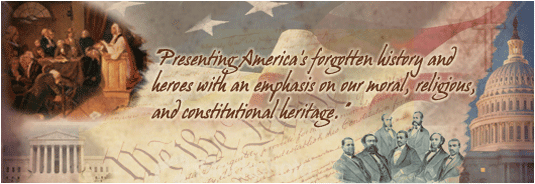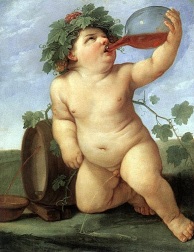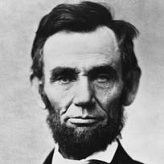BLOG, or DIE. Author Bio
Saturday, 4 February 2012
Re-evaluating the U.S. Constitution
 There is perhaps no other document in the history of American politics that is more hotly contested than the U.S. Constitution. For centuries historians and pundits alike have argued over the Founder’s intent and some have even questioned the Constitution’s validity in modern society.
There is perhaps no other document in the history of American politics that is more hotly contested than the U.S. Constitution. For centuries historians and pundits alike have argued over the Founder’s intent and some have even questioned the Constitution’s validity in modern society.
Each election season candidates on both sides of the political spectrum refer to the Constitution in support of their platforms while the voting public, whose vast majority has never even read the document, are led to believe that it contains a timeless wisdom that is essential to maintaining a functioning democratic republic. Unfortunately, the term ‘dysfunctional’ seems more appropriate when describing American politics today.
Some politicians, mainly those on ‘the right,’ claim that in order for the nation to return to any level of prominence, an unwavering allegiance to the guiding principles of the Constitution is absolutely necessary. The Tea Party movement in particular maintains this stance. Over on ‘the left’ there is a more liberal, progressive portion who does not accept the inherent premise that all of the country’s problems can be remedied by simply returning to political philosophies from 1787. They call for reform in order to meet the ever-changing demands of today’s world. Perhaps the answer lies somewhere in between?
There is a trend among those who have studied both the origins of the U.S. Constitution and the resulting course of American history which proposes that the system put in place by the Founders was never really as ingenious as we were led to believe, nor was it an unquestionable and infallible way of governance. In other words, American politics has been dysfunctional from the drafting of the Constitution. Some critics cite the insincerity of the Founder's pledge for independence, while others contend that the two-party system's failures of today can be traced back to the limitations that were established by our very first government.
In retrospect the Constitution's preamble of "We the People" does seems quite absurd given the time period it was written when women and minorities had no civil rights whatsoever. We tend to forget that America was originally established by wealthy white men, for wealthy white men. They should be rightfully credited for gaining independence for the country, but not for its citizens. Therefore, the liberties and freedoms that we enjoy today came as the result of great struggles and sacrifices that were made by those who came after the Founders.
Progressive historians are not the only ones who have taken a more critical stance on the origins of the U.S. Constitution. There have been some highly-respected political figures who were gutsy enough to acknowledge the Constitution’s flaws and antiquated principles. One of the most noteworthy of these was Thurgood Marshall who gave a highly controversial speech that was critical of the Founding Fathers and the U.S. Constitution. Marshall was one of the few voices pointing out that the original Constitution required numerous amendments and came to a crisis that required a Civil War to solve.
In an era of obedient flag waving and patriotic rhetoric, Marshall’s comments were both disruptive and thought-provoking. They still are today. On May 6, 1987, Marshall presented his bicentennial speech at The Annual Seminar of the San Francisco Patent and Trademark Law Association. (Read entire speech here). Two main points in that speech outlined the popular misconceptions over the document:
Like many anniversary celebrations, the plan for 1987 takes particular events and holds them up as the source of all the very best that has followed. Patriotic feelings will surely swell, prompting proud proclamations of the wisdom, foresight, and sense of justice shared by the Framers and reflected in a written document now yellowed with age. This is unfortunate, not the patriotism itself, but the tendency for the celebration to oversimplify, and overlook the many other events that have been instrumental to our achievements as a nation. The focus of this celebration invites a complacent belief that the vision of those who debated and compromised in Philadelphia yielded the “more perfect Union” it is said we now enjoy.
I cannot accept this invitation, for I do not believe that the meaning of the Constitution was forever “fixed” at the Philadelphia Convention. Nor do I find the wisdom, foresight, and sense of justice exhibited by the Framers particularly profound. To the contrary, the government they devised was defective from the start, requiring several amendments, a civil war, and momentous social transformation to attain the system of constitutional government, and its respect for the individual freedoms and human rights, we hold as fundamental today. When contemporary Americans cite “The Constitution,” they invoke a concept that is vastly different from what the Framers barely began to construct two centuries ago…
…The men who gathered in Philadelphia in 1787 could not have envisioned these changes. They could not have imagined, nor would they have accepted, that the document they were drafting would one day be construed by a Supreme Court to which had been appointed a woman and the descendent of an African slave. We the People” no longer enslave, but the credit does not belong to the Framers. It belongs to those who refused to acquiesce in outdated notions of “liberty,” “justice,” and “equality,” and who strived to better them.
And so we must be careful, when focusing on the events which took place in Philadelphia two centuries ago, that we not overlook the momentous events which followed, and thereby lose our proper sense of perspective. Otherwise, the odds are that for many Americans the bicentennial celebration will be little more than a blind pilgrimage to the shrine of the original document now stored in a vault in the National Archives. If we seek, instead, a sensitive understanding of the Constitution’s inherent defects, and its promising evolution through 200 years of history, the celebration of the “Miracle at Philadelphia” will, in my view, be a far more meaningful and humbling experience. We will see that the true miracle was not the birth of the Constitution, but its life, a life nurtured through two turbulent centuries of our own making, and a life embodying much good fortune that was not.
I could not agree more.
Posted by ny5/pinstripepress
at 4:09 PM EST
Updated: Wednesday, 8 February 2012 11:16 AM EST
Permalink |
Share This Post

Monday, 30 January 2012
They're not fooling anyone

WallBuilders web banner outlining their mission
When I was a senior in high school my history teacher asked us to write a paper about someone other than an American who had a definitive impact on history. Taking the villain route I wrote about Joseph Goebbels who was the Reich Minister of Propaganda in Nazi Germany from 1933 to 1945. I used Goebbels diaries as my main source, which to this day remains one of the most fascinating and disturbing things I’ve ever read. As one of Adolf Hitler's closest confidants, and as a man who killed six of his own children before committing suicide, Goebbels was equally as insane as he was intelligent. He was also a powerful propagandist who preyed upon the German population’s yearning for national pride. Without him, Hitler would not have cast such a spell over his people.
Goebbels proved that you can convince anyone of anything if they are woefully ignorant, or in desperate need of something to believe in. One of Hitler’s most powerful tools for capturing the hearts and minds of the German people was the manipulation of history to support his political agenda. By skewing the facts, misinterpreting meanings, and propagating fiction, the Nazi’s were able to create an alternate history of Germany’s origins. This fantasy later evolved into a form of patriotism that reinforced the Fuhrer’s vision for a supreme Aryan society.
Today, we have our own version of historically-slanted political marketing that is being disseminated by right-wing propagandists masquerading as historians. No one practices this crime more blatantly than David Barton‘s WallBuilders whose version of history paints America as a right-wing, ultra-conservative Christian nation that is embattled in a culture war for the very soul of the country. And although I am not equating the underlying efforts of this organization to the murderous evils that were perpetrated by the Nazis, I am comparing their practice of using history to support a political agenda. Just as Goebbels falsified Germany’s past; Barton and Co. have manipulated America’s for political gains. (What is really sad is the number of gullible folks who have been roped into believing it, although one peek at a Tea Party rally or Glenn Beck audience may explain why).
Unlike Goebbels, David Barton started out as a fundamentalist evangelist. He is a Texas minister, founder of WallBuilders and former co-chair of the Texas Republican Party. His books are dedicated to the idea that America should reject the concept of separation of church and state and institute Biblical law. He also maintains the notion that the Founding Fathers would be ardent supporters of the conservative movement if they were around today. Of course academically certified historians call Barton a Christian “revisionist” and constantly question the source of his many out-of-context quotes of American notables in his works. Not surprising, Barton rarely answers his critics with any credible sources for his historical claims.
Why should he? He is the unquestionable darling of the conservative and evangelical movements and the personal historian for right-wing mouthpieces Glenn Beck and Mike Huckabee. In other words, there are plenty of rubes that adore him – and that makes him dangerous. Despite Barton’s lack of academic credentials and his sloppy scholarship, he has managed to create an important niche by traveling all over the country telling audiences that the Founding Fathers were evangelicals just like them, and intended to create a nation of, by, and for Christians.
In a report published by the People for the American Way Foundation titled *David Barton: Propaganda Masquerading as History those in the know take Barton to task: Academic historians, according to the New York Times, give Barton’s work at best a “B minus,” noting that while the historical facts he cites are more or less accurate, his biased interpretation of them is not. The Baptist Joint Committee for Religious Liberty said that Barton’s work is “laced with exaggerations, half-truths and misstatements of fact” and the Texas Freedom Network calls him “a pseudo-intellectual fraud whose twisted interpretations of history are little more than propaganda.”
In 1995, Republican Senator Arlen Specter wrote in the Harvard Journal of Law and Public Policy that many of Barton’s arguments “range from the technical to the absurd” and that they “proceed from flawed and highly selective readings of both text and history.” Specter went on to state that Barton’s “pseudoscholarship would hardly be worth discussing, let alone disproving, were it not for the fact that it is taken so very seriously by so many people.” (*See a list of Barton’s most ridiculous historical claims.)
WallBuilders mission statement reads:
WallBuilders is an organization dedicated to presenting America's forgotten history and heroes, with an emphasis on the moral, religious, and constitutional foundation on which America was built – a foundation which, in recent years, has been seriously attacked and undermined. In accord with what was so accurately stated by George Washington, we believe that “the propitious [favorable] smiles of heaven can never be expected on a nation which disregards the eternal rules of order and right which heaven itself has ordained.” (Sounds like a blogger I know.)
This claim, like most of Barton’s claims, is absolute B.S. Their true mission statement should read like this:
WallBuilders is an organization dedicated to promoting David Barton’s book sales while manipulating American history in order to push our own conservative agenda on a highly gullible and susceptible portion of the American populace. By making up our own version of our nation’s origins and lacing it with outrageous religious claims, we hope to influence voters into supporting our own right-wing candidates, who in turn will support our own special interests upon their election into office. By mixing 1-part textbook and 2-parts bible, our special brand of psuedo-christian American history makes even heathen bastards like Thomas Jefferson look like devout, bible-thumping altar boys. PS. We vote like Jesus would.
For irrefutable proof of Barton’s dishonesty, I refer you to a 9-part video blog by Chris Rodda, author of the book, Liars of Jesus. In the video, Rodda attends a religious gathering featuring David Barton. At the conclusion of the meeting, Rodda approaches Barton and presents him with a copy of her book. A few months later, David Barton, on his radio program, mentioned Chris Rodda and portrayed the meeting as one in which Barton completely and utterly confounded the quote, "clueless" Rodda by expounding upon his wealth of historical knowledge. Rodda counters this claim by meticulously picking apart dozens of Barton's material with...get this, actual facts. (It is virtually impossible to watch this video series in its entirety and not come to the same conclusion.)
As a historian and as a Christian, I find the intentional politicization of my faith and the manipulation of my nation’s historical origins to be extremely offensive. I say watch out for the “David Bartons and WallBuilders” of the world. They are just as dangerous at skewing public perspective as the Goebbels. Stand up to them by speaking the truth in matters of both history and faith.

Friday, 27 January 2012
Have a drink on me
 Referred to in historic literature as “the Green Fairy” Absinthe is described as a distilled, highly alcoholic (45–74% ABV / 90-148 proof) beverage. Its legacy has been one of controversy and its reputation as a mysterious, addictive, and mind-altering potion has caused it to be periodically banned in many countries. Absinthe has also served as the subject of numerous works of fine art, films, video, music and literature since the mid-19th century and has spawned an ever-growing subculture of 21st century Absinthe enthusiasts.
Referred to in historic literature as “the Green Fairy” Absinthe is described as a distilled, highly alcoholic (45–74% ABV / 90-148 proof) beverage. Its legacy has been one of controversy and its reputation as a mysterious, addictive, and mind-altering potion has caused it to be periodically banned in many countries. Absinthe has also served as the subject of numerous works of fine art, films, video, music and literature since the mid-19th century and has spawned an ever-growing subculture of 21st century Absinthe enthusiasts.
Numerous artists and writers living in France in the late 19th and early 20th century were noted Absinthe drinkers who featured the alcohol in their work. These included Emile Zola, Vincent van Gogh, Édouard Manet, Amedeo Modigliani, Arthur Rimbaud, Guy de Maupassant, Henri de Toulouse-Lautrec, and Paul Verlaine. Later artists and writers drew from this cultural well, including Pablo Picasso, August Strindberg, Oscar Wilde, and Ernest Hemingway.
Aleister Crowley was also known to be a habitual Absinthe drinker. Emile Cohl, an early pioneer in the art of animation, presented the effects of the drink in 1920 with the short film, Hasher’s Delirium and mystery novelist Sir Arthur Conan Doyle wrote that his renowned detective Sherlock Holmes indulged in the pleasures of Absinthe from time-to-time. Since its resurgence in recent years, modern artists such as musician Marilyn Manson and actor Johnny Depp are unabashed Absinthe drinkers with Manson actually producing his own line of the alcohol.
Despite the fact that there is no scientific proof, Absinthe continues to be frequently and improperly described in modern times as being hallucinogenic. This is entirely false (I think) and at least partly rooted in the fact that following some ten years of experiments with wormwood oil in the 19th century, the French psychiatrist Valentin Magnan studied 250 cases of alcoholism, and claimed that those who drank Absinthe were worse off than those drinking ordinary alcohol, having experienced rapid-onset hallucinations. Such accounts by opponents of Absinthe were cheerfully embraced by famous Absinthe drinkers, many of whom were bohemian artists or writers. Their frequent physical and emotional breakdowns were then blamed on Absinthe, although alcoholism, drug abuse and in some cases, mental-illness was more likely to blame.
As a cocktail connoisseur myself, I have been recently gifted with some Absinthe and will be consulting a close friend with a doctorate in history (and more impressive, the science of bartending) as to the proper preparation and consumption of the liquid. If it was good enough for those folks listed above, it’s certainly good enough for me. And I do hallucinate, I promise to write, or paint, or compose something brilliant. Cheers!
Image: Drinking Bacchus by Guido Reni (1575-1642)

Thursday, 26 January 2012
Two NEW books...
Eric and I have been busy going over the proofs for our upcoming book You Stink! Now that I am seeing the final layout (with the photos and tables inserted), I can say beyond a shadow of a doubt that this book has far exceeded our expectations. I can also say (now that I’ve read it cover to cover), that it is the best thing in print that I’ve ever been a part of. Plan on lots of speaking engagements and publicity to follow the release of this one folks. It’s something special.
In other news, I was just informed by the good folks at The History Press that my book on the Civil War in Spotsylvania County is being re-released as an eBook for Kindle and all those other electronic thingamajigs. Details to come.
Wednesday, 25 January 2012
Being honest about Abe
 There is quite a lot of chatter going on around the CW blogosphere in regards to Abraham Lincoln getting an official holiday here in Virginia. Kevin Levin has a great discussion going on over at Civil War Memory that includes an individual who is actually involved in the crafting of the legislation. I will refer you to his post, but wanted to share my quick-take on the matter.
There is quite a lot of chatter going on around the CW blogosphere in regards to Abraham Lincoln getting an official holiday here in Virginia. Kevin Levin has a great discussion going on over at Civil War Memory that includes an individual who is actually involved in the crafting of the legislation. I will refer you to his post, but wanted to share my quick-take on the matter. The counter-argument that many folks are using is why should Lincoln deserve a holiday in Virginia? The implication is that he was ‘against’ the Old Dominion. This is NOT true. He was against the portion of Virginia that seceeded from the nation, the Confederate States of America to be exact. That is not the entire population of the state. What about all the enslaved African Americans that were freed by his actions? What about the loyalists who wanted to preserve the Union? Lincoln was actually ‘for’ them.
If we can celebrate Lee and Jackson for defending the Confederacy on behalf of whites, why can’t we also celebrate Lincoln who defeated the Confederacy on behalf of blacks? And if the proud descendants of Virginia’s Confederate Veterans can celebrate their heroes – why can’t the proud descendants of Virginia slaves likewise celebrate theirs? The door swings BOTH ways in my opinion. Whether you’re a Lincoln fan or not, to imply that he did not have a positive impact on Virginia that is worthy of remembrance is wrong.
Posted by ny5/pinstripepress
at 12:22 PM EST
Updated: Thursday, 26 January 2012 10:17 AM EST
Permalink |
Share This Post

Newer | Latest | Older
 There is perhaps no other document in the history of American politics that is more hotly contested than the U.S. Constitution. For centuries historians and pundits alike have argued over the Founder’s intent and some have even questioned the Constitution’s validity in modern society.
There is perhaps no other document in the history of American politics that is more hotly contested than the U.S. Constitution. For centuries historians and pundits alike have argued over the Founder’s intent and some have even questioned the Constitution’s validity in modern society. 






 Referred to in historic literature as “the Green Fairy” Absinthe is described as a distilled, highly alcoholic (45–74% ABV / 90-148 proof) beverage. Its legacy has been one of controversy and its reputation as a mysterious, addictive, and mind-altering potion has caused it to be periodically banned in many countries.
Referred to in historic literature as “the Green Fairy” Absinthe is described as a distilled, highly alcoholic (45–74% ABV / 90-148 proof) beverage. Its legacy has been one of controversy and its reputation as a mysterious, addictive, and mind-altering potion has caused it to be periodically banned in many countries.  There is quite a lot of chatter going on around the CW blogosphere in regards to Abraham Lincoln getting an official holiday here in Virginia. Kevin Levin has
There is quite a lot of chatter going on around the CW blogosphere in regards to Abraham Lincoln getting an official holiday here in Virginia. Kevin Levin has